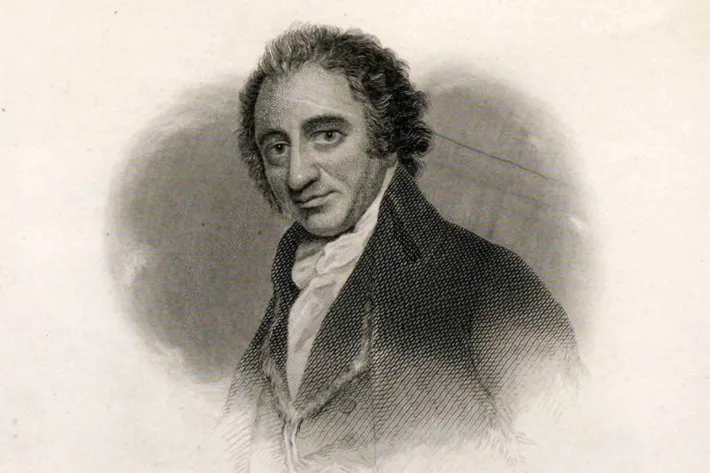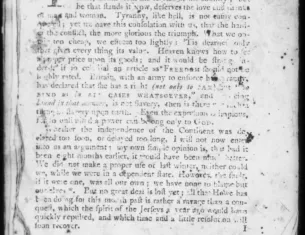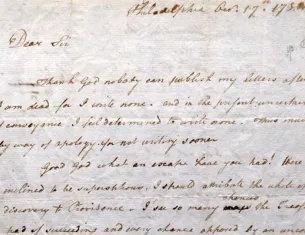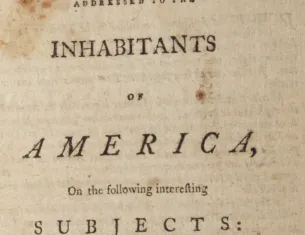Thomas Paine

Thomas Paine, by Romney Illman & Sons (The Gilder Lehrman Institute of American History)
Thomas Paine (1737–1809), the English-born son of a Quaker, launched his career as a radical in 1772. He was dismissed from his job as an excise officer in England in 1772 for agitating for higher pay. Two years later he emigrated to America. Paine was a vehement supporter of the patriot cause and his Common Sense (1776) and sixteen-part series The Crisis (1776–1783) made him one of America’s leading pamphleteers.
In 1787 Paine returned to England, where he wrote The Rights of Man (1791–1792), a defense of the French Revolution. His inflammatory writings led to a treason charge in England, and he was forced to flee to Paris. In France, Paine gained a prominent place in political affairs but soon found himself imprisoned by the Jacobins during the Reign of Terror. By the time Paine returned to the United States in 1802, his anti-Biblical work The Age of Reason (1794–1795) and Letter to Washington (1796), which pilloried the President, had rendered him persona non grata in much of America. He died in poverty in 1809.


